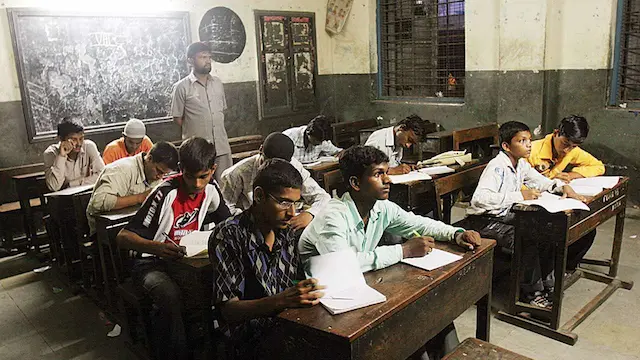
Education is a fundamental human right and the cornerstone of an equitable society. However, for many individuals around the world, accessing traditional daytime educational opportunities can be a significant challenge due to work, family obligations, or other circumstances. This is where evening and night schools play a crucial role, offering a lifeline for those seeking knowledge and self-improvement.
According to a report by the United Nations Educational, Scientific and Cultural Organization (UNESCO), there are approximately 773 million illiterate adults worldwide, with women accounting for two-thirds of that number. Evening and night schools provide a viable solution for these individuals, allowing them to acquire essential literacy and numeracy skills while maintaining their daily responsibilities.
In developing countries, where poverty and lack of access to education are prevalent, evening and night schools have proven to be a game-changer. A study conducted by the World Bank found that in sub-Saharan Africa, where the average adult literacy rate is a mere 65%, evening and night school programs have increased literacy rates by up to 20% in some regions.
However, the importance of evening and night schools extends far beyond basic literacy. These institutions offer a wide range of educational opportunities, from vocational training and skills development to academic courses and professional certifications. By providing flexible schedules and affordable access, they empower individuals to pursue lifelong learning and enhance their employability.
In the United States, for instance, the National Center for Education Statistics reports that approximately 3.1 million students were enrolled in adult education programs, including evening and night classes, during the 2019-2020 academic year. These programs play a vital role in upskilling and reskilling the workforce, particularly for those seeking career advancement or transitioning to new industries.
Evening and night schools also especially help marginalized communities and individuals with diverse backgrounds. A study conducted by the University of California, Los Angeles, revealed that evening and night school programs have significantly improved educational outcomes for immigrant and refugee populations, providing them with the tools and resources necessary to integrate into their new communities.
Furthermore, these institutions promote social mobility and address the perpetual cycle of poverty and inequality. According to a report by the Organisation for Economic Co-operation and Development (OECD), individuals who participate in adult education programs, including evening and night schools, are more likely to secure higher-paying jobs and contribute to the economic growth of their communities.
Despite their numerous benefits, evening and night schools often face challenges such as inadequate funding, limited resources, and a shortage of qualified instructors. However, their impact on personal and societal transformation cannot be overstated. By providing accessible and inclusive educational opportunities, these institutions are paving the way for a more equitable and knowledgeable global community.
Evening and night schools are vital institutions that promote social equity, accessibility to education, and lifelong learning opportunities. By breaking down barriers and empowering individuals from all walks of life, they are catalyzing positive change and fostering a more just and prosperous world.


 Raj Mehta – Financial Education Instructor
Raj Mehta – Financial Education Instructor